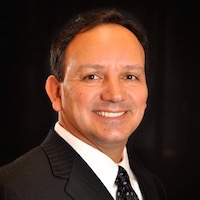Category Archives: Passion
From frustration to freedom: How to disentangle yourself (and help others in the process)
“An effort made for the happiness of others lifts us above ourselves.”
~ Lydia M. Child (1802-1880) Writer
Have you ever gotten so mired in frustration that you just can’t seem to move beyond it?
When life brings you down, it’s easy to become excessively focused on all the things that seem to be a source of frustration. And it is all too easy to become completely immersed in the feeling of dissatisfaction itself. When we do, this fixation is like a magnifying glass through which every problem or challenge we have expands to several times its normal size until it all feels too utterly daunting to move at all. And this orientation seems to somehow draw all manner of setbacks and further difficulty. As the old adage goes, “when it rains, it pours.”
It could be that the way we tend to act when we are already feeling beaten contributes to the negative cycle. Or perhaps that when we are so intent on seeing all the things that we feel rotten about that even things that would normally be no big deal suddenly feel incredibly heavy. In any case, we all have days where what’s going wrong seems to take up more of our attention than what’s going right and life just feels like one d@#n thing after another.
At times like these, I’ve found that the best thing you can do is anything that allows you to go beyond yourself to be of service to another human being.
It may seem somewhat naïve and Pollyannaish to presume that forgetting all your troubles to go help someone else would do much, if anything, to change the situation. How could something so simple and totally unrelated to what is going on have any impact when you feel so down and out that you cannot do another thing?
I had a roommate in college who was down in the dumps for a few weeks.
Her usually delightful demeanor had become heavy and a little dark. She was going through one of those slumps we all encounter from time to time. One day when I came home from class, there was a envelope taped onto our door. As I looked around the building we lived in, I noticed similar envelopes hanging on other doors. This one had my name on it, handwritten. I tore it open and found a piece of notebook paper up on which was written one of the most heartfelt notes I had ever read.
It was signed “from someone who appreciates you deeply” and as I read it, I found myself falling into the page while small tears began to collect at the corners of my eyes. The author of the note had recounted things I had done over the last several weeks – many of which I thought were insignificant – that made a difference in that person’s life. There were kind, warm words of praise and gratitude as well as encouragement and inspiration. Whoever wrote that note apparently thought I was special and took the time to tell me why in such a way that it profoundly touched me. I looked up and saw someone across the hall reading her note and watched as her face began to light up.
 When I opened the door, I found my roommate sitting contentedly writing in her journal and sipping a cup of tea. She looked up and smiled for what seemed the first time in weeks.
When I opened the door, I found my roommate sitting contentedly writing in her journal and sipping a cup of tea. She looked up and smiled for what seemed the first time in weeks.
“Did you get one of these notes?’ I asked her.
“No,” She responded with a grin.
And then it hit me. She was the one who wrote the notes. She didn’t admit it at first, but I finally got it out of her.
“What led you to do this?” I asked her. “It must have taken you hours!”
“I was tired of feeling tired and sad and lonely,” she said. I was sick of my gloomy little world. And I decided that if I couldn’t make it better for myself, maybe I could make it better for someone else.”
She had started with one note. And then she wrote another. And then another. And it felt so good, she said, that she decided she’d just write until she didn’t feel like writing anymore.
That was over twenty years ago. And it still inspires me.
She taught me more through her actions that I would have learned by reading ten books that day. I don’t think she intended it at the time, or even realized it until she started writing her notes, but the gift she gave to everyone in that building ended up being something that benefitted her just as much as everyone else. And my guess is that it is still benefitting her and everyone else – because I know it’s still meaningful and significant to me.
Gandhi said “You must be the change you want to see in
the world”. Richard Bach wrote “We teach what we most need to learn.” And Maya Angelou tells us, “I have found that among its other benefits, giving liberates the soul of the giver.” Perhaps this is one of the true gifts in giving – that when we get outside of ourselves to touch another human being, it has a way of bringing us gently back to ourselves so that we too receive the gift. And it holds true even when we think we have nothing left to give.
When our egos get the best of us and we think nothing will ever go the way we want it to, we can transcend a state of wanting by moving into a state of giving.
Think of something you want right now, in this moment. What is it that “something” will give you? Most likely it is a feeling – perhaps a feeling of contentment, satisfaction, prosperity, abundance, or joy. Now, see if there is something you can do for another person to help them experience those things. Often when we give to others, we find we already had that which we were seeking. We realize the thing we thought we needed is a means to an end that we have
already arrived at. And perhaps this, in and of itself is the true gift of giving – and the magic elixir that transforms frustration to freedom.
Overthrowing the Tyranny of Should: How to transform your chores into choices
This morning as I reflected on the day ahead of me, I had an epiphany. I realized there is one word that has a way of sucking all the joy out of everything I do. And that word is SHOULD.
Let me explain. Over the last several weeks, I’ve been blessed with a number of ideas that landed gently at the edge of my awareness. They were accompanied by an electricity that made them glimmer and pique my curiosity. Some of those ideas were for articles, some for videos, and others for potential projects and other endeavors.
I couldn’t help but feel a surge of excitement as I pondered them. The feeling reminded me of dreams I had as a kid where I would find myself amidst piles of treasures, golden and shimmering. In those dreams, I often knew I would be waking soon and tried to scoop into my arms and shove into my pockets as much of those riches as I could, in an attempt to bring them back into my waking reality. Of course, I always awoke in my pajamas with no sign of the fortunes I was previously enjoying.
As an adult, I realize that we sometimes get glimpses of treasure in our waking hours too. These treasures are in the form of ideas that beckon to us. They get our hearts pumping and send a charge through our bodies. And if we don’t act on them, even in some small way, they evaporate into nothingness, just as the remnants of the dreams I had as a kid did upon waking.
 So, I’ve learned to write these ideas down when I get them. And I know the importance of continuing to take action on them. Here’s the thing I discovered this morning:
So, I’ve learned to write these ideas down when I get them. And I know the importance of continuing to take action on them. Here’s the thing I discovered this morning:
That flame that was sparked when those ideas hit, and slowly stoked as I pondered and moved into them — that fire that was crackling with intensity and even beginning to blaze — was almost completely doused when I introduced the word “SHOULD” into its presence.
As soon as I felt the weight that came from believing I should write those articles, I no longer really wanted to. They were right up there with cleaning out my garage. When I’m shouldering the burden of should, all my procrastination mechanisms kick in. I’ll check my email, venture over to Twitter or Facebook, read some silly thing that has absolutely no value to me. And then I’ll really feel awful.
Just say the word “should” and feel your energy drop. “I should go to work today. I should eat healthier food. I should get moving on that project. I should return those calls. ” Even the things you want to do become tainted and heavy when the word “should” is involved.
I think the reason SHOULD kills our joy is that it turns what is really a CHOICE into a CHORE.
When something is a chore, you just want to get it over with. You’re checking the box and never really get into it. Maybe you’re thinking about all the things you’d rather be doing or how much you resent the fact that you “have to” do what you are doing in the moment. “Should” causes us to withhold that which gives us and everyone around us life. And that is really unfortunate for everyone involved. Because if what you do touches the lives of other people (and pretty much everything we do does), they are cheated of having the full experience of you in the work. They get a mere shell of what would otherwise be filled with substance. And you miss out on the joy that comes with making the choice to fully participate in something that could very well transform you just by having done it.
What is it that you feel you should do today? Maybe it’s something you don’t think you really have a choice in, like showing up for work or paying your bills. OK. Let’s say you don’t really love your job right now. The more you tell yourself it’s something you have to do — the more you allow your should to make it a chore — the less of you you’ll bring to it, the more you will focus on all the things that bring you down, the less remarkable your work will be, the more out of touch you will be with what makes you happy, and the less likely you will be to position yourself for work that does bring you joy.
But let’s say instead of making it a chore, you make it a choice. You decide that whatever this day brings, you will find something to be happy about, something to be present for, something to light you up. Maybe it’s just giving someone a smile, or taking that extra minute to do something you’d like someone to do for you, or being grateful that you have a job. Maybe you take that onerous task you’ve been dreading and make a game of it. Try it and see what happens.
When you bring joy into your work, you’ll increasingly find that you have work that brings you joy. You’ll see things from new perspectives and make different connections and different choices. You’ll find ways to infuse more of what enriches you and those around you into whatever it is that you do.
As soon as I realized what my “should” was doing to that glimmering treasure trove of ideas, I took myself back to the delight I felt when I first pondered them — the energy that was in the air, the childlike wonder and curiosity. And I remembered  how much I really want to do all those things. The chore went away and I reclaimed my choice. The heaviness dissipated and I began to feel free and
how much I really want to do all those things. The chore went away and I reclaimed my choice. The heaviness dissipated and I began to feel free and
inspired again. I sat at my computer and began to write the very article you are reading now, enjoying and savoring each moment of the experience.
And I made a pact with myself to be more aware of my “shoulds”. Because any chore can be transformed into choice when you trade the “should” for “want to”. And when you make the choice to bring who you really are into whatever it is you are doing, EVERYONE will benefit.
Join me, won’t you?
Are you on autopilot? How to reclaim (and reinvigorate) your life.
Every once in awhile I treat myself to a massage. It is especially enjoyable when my muscles are sore. I make a special effort to be as aware of every little sensation as I can – so that nothing escapes my perception. I want to completely immerse myself in the experience and enjoy every second of it. And when I do this, I have often felt as though it might be possible to slow time down. While this is likely not possible (though there are some who believe there is no such thing as time), I do think being intensely present allows us to fill each second of our time with more awareness, more enjoyment and more of life’s sweetness than ever.
I contrast this to how I often feel driving home at the end of a long day in traffic (especially if there are screaming kids in the car), cleaning up after my dog or cat, or getting a cavity filled. Engaged in a somewhat banal or even unpleasant activity such as this, I can to some degree disengage from it altogether, and occupy my mind with other things.This seems to have a way of speeding everything up and making the whole experience distant and somewhat blurred upon my recollection of it. I can drive all the way home in this state and not be able to recall a single landmark I passed along the way.
The knowledge that I have the ability to slow down or speed up time for myself in this way is interesting to me. But what is even more intriguing – and somewhat unsettling – is the thought of how much of my life is spent somewhere between these two extremes, kind of on auto pilot. How many times in a conversation with someone is my mind somewhere else – scanning my “to do” list, thinking of what I could prepare for dinner, or even contemplating what I want to say next? How many times when my kids come proudly marching through the door to show me their latest artwork do I half heartedly glance up from what I’m doing and offer feigned enthusiasm? What I miss in those moments issomething I can never get back.
I used to feel it was important to capture specialtimes on film – and lugged around a camera, camcorder (or both) at the kids’ recitals, ball games, or during vacations and holiday events. Then one day I realized I’d get so caught up in getting the perfect shot that I missed those precious moments altogether. And they are never quite the same when you watch them on video. So I began to resist the urge to reach for those devices (or evebring them altogether), and instead simply immerse myself in whatever was going on. I think the quality of my memories has improved significantly – even if I don’t have a lot of photos or videos to show for it.
around a camera, camcorder (or both) at the kids’ recitals, ball games, or during vacations and holiday events. Then one day I realized I’d get so caught up in getting the perfect shot that I missed those precious moments altogether. And they are never quite the same when you watch them on video. So I began to resist the urge to reach for those devices (or evebring them altogether), and instead simply immerse myself in whatever was going on. I think the quality of my memories has improved significantly – even if I don’t have a lot of photos or videos to show for it.
What if we lived more of our lives with the kind of presence we have when we don’t want to miss a thing? How much more in tune would we be with each other? How much more of each other would we actually experience and enjoy? How much more trust could we inspire and nurture? How much more joy could we create? How many more problems would we solve with solutions that addressed those little things that may have previously escaped our awareness and come back to bite us? How much more of our very selves could we bring to everything that we do and everyone we are with? And how much better the world would be because of it!
Perhaps as we become more aware of the degree to which we are really showing up, we can begin to gaugehow much of our lives we are truly living. And then we can consciously create – and enjoy– lives worth living for.
Finding Your Zone: Three tips for stepping into your brilliance
I had the good fortune of seeing Tom Petty in concert a few years ago. His opening act was Chuck Berry. At age 83 , he performed with just as much energy and passion that he did fifty years ago. And then TP and the Heartbreakers took the stage. They rocked the house. The very first song brought people out of their seats and transported them to a place that transcended time and space and leave all their worries, tension and stress behind.
I love to watch people who have mastered their craft enter their zones. They are captivating, uplifting and inspiring. And their energy is contagious. They have the ability to connect with people they may never actually know personally, and somehow leave them in a better state than they were before. Their impact on us remains long after we have parted ways.
 It’s easy to see this state of grace in people who perform – like musicians, actors, athletes, speakers, dancers, etc. But any of us can get into a zone that allows us to experience a state of flow and oneness with our work that feels effortless and transformational.
It’s easy to see this state of grace in people who perform – like musicians, actors, athletes, speakers, dancers, etc. But any of us can get into a zone that allows us to experience a state of flow and oneness with our work that feels effortless and transformational.
As I watched Tom Petty perform, I noticed three things he did that I consider pivotal to finding your zone – no matter who you are or what you do.
(1) Don’t take yourself too seriously.
“It’s all right if you love me. It’s all right if you don’t.” A classic line from a classic Tom Petty song. I imagine there may have been a time when Tom Petty cared a lot about what people thought of him. Most of us have gotten hung up on worrying about others’ opinions at one time or another. Desiring approval and admiration isn’t a crime. And there is nothing wrong with wanting success. But getting too attached to it can have adverse effects. It’ll trip you up and keep you from finding your zone. There is a sweet spot that Tom Petty and other great masters of their crafts have found – one that allows them to play at success without becoming preoccupied with it. The paradox is that letting go of the burning need for success seems to have a way of somehow opening the gates so that it can come in – and it makes everything a lot more fun too.
(2) Be WHERE you are.
The timeless place Tom Petty transported his audience to was largely a product of his own ability to completely immerse himself in the moment. He could not have been more present. When you are present, you don’t fret over things that happened yesterday or worry about what might happen tomorrow. You simply allow things to unfold around you in such a way that you can remain tuned in and turned on. You connect with your intuition. You act on your insights and learn to improvise. Rather than waiting for the “right opportunity” to do what you love, you begin where you are and allow everything that you do to be an expression of love in and of itself. And you create a space that connects us to others in profound ways.
(3) Be WHO you are.
Tom Petty’s voice is distinctive. And so is his style. Maybe he found it right away. Maybe, like many of us, he started out by emulating someone else before he discovered that what came naturally to him was better than anything else. Great artists often learn by studying and imitating the work of other artists. But the best of the best eventually break out of the mold and find their unique style. The same is true for each of us. We begin our lives by learning from and mirroring others, but at some point the time comes for us to step into and embrace our uniqueness. Gradually, we learn to trust that our unique gifts are there for a reason and find ways to utilize them. As we believe in ourselves and our ability to contribute to something greater than ourselves, our work – like that of Tom Petty and ChuckBerry – becomes an inspiration to others.
As I was leaving the stadium after the concert had ended, I saw a man on the sidewalk playing his heart out on a tenor sax. He was standing next to a large cardboard sign on which was written in bold black letters the words:
“YOU HAVE GREATNESS WITHIN YOU.
SHARE IT WITH THE WORLD.
BELIEVE IN YOURSELF AND YOUR DREAMS
AND THEY WILL COME TRUE.”
I couldn’t agree more.
The Power of Presence: How to lead without saying a word
“We can do more good by being good, than in any other way.”
– Rowland Hill
On my way to an appointment the other day, I made a right turn and couldn’t help but notice the expressions of people in each of the cars in line waiting to turn left.
One woman’s face was forlorn and her head drooped over the steering wheel. The car behind her contained a woman whose smile and upward glance beamed joy and anticipation. The face of the man in the car after her looked like a clenched fist and his shoulders were scrunched up next to his ears. His free hand clutched a blackberry, onto which his eyes were glued.
I smiled as I realized that I could relate to each of these people.
I have worn all their various expressions and postures at one time or another. And it occurred to me that I could wear any of their countenances as the day progressed. Which would I choose? The answer to that question could very well have determined the quality of my entire day, and could also quite likely have impacted those around me as well.
Every once in a while when I go out running I see a little old man riding a beach cruiser.
In the dawn hours, as the sun begins to peek above the horizon, the light glistens across his handlebars. He is a fairly round man with fuzzy white hair and bright blue eyes. He pedals so slowly that it is a wonder he and his bicycle don’t just fall over. But what is most striking about him is that he is always smiling.
Every time I see this man, rain or shine, he seems to have something to be happy about.
And his smile isn’t just the polite grin that people often quickly exchange as they enter each other’s space. It is the kind that comes from a deep contentment and wonderment with life. The little light on his bicycle shines brightly at the crack of dawn, but the glow around him is even more radiant. I find myself hoping to see him on my morning runs and experiencing waves of joy and delight every time I do – feeling lighter and happier just for having crossed his path. His presence alone is truly inspiring.
I think radiating a positive presence is essential to being a leader. And to have this kind of influence and effect on others, you don’t have to have a fancy title, a bunch of people reporting to you, or even work in an organization at all. People pick up, consciously and subconsciously on the energy we emanate – and for better or worse, those we spend a lot of time around will often align themselves with it.
True leaders – in any vocation – are conscious of their presence and the tone it sets. They use it to uplift and inspire others, perceiving the brilliance of everyone and everything around them and graciously reflecting it back.
I wonder whether that sweet little man on the beach cruiser has any idea of how profoundly he has impacted me. And I wonder if you realize the effect you can have on the lives of everyone around you as well… maybe without even having to say a word.
Want to create an inspired workplace? Three examples to light your way.
As an executive coach, I work with leaders in both large and small organizations – who are passionate about creating inspired workplaces.
They aren’t sure how to do it. They aren’t sure people will respond favorably. They aren’t sure it will work at all.
They want to break the unspoken, unwritten rules of organizations that say…
…. that the version of yourself you bring to work is different than who you are at home.
…that work is a place where you do what your boss says and don’t ask a lot of questions.
…that you have to suck it up when what you are tasked to do doesn’t really jive with who you are.
…that you have to keep your head down and just make it through the day, the week, the month, the year and collect your paycheck regularly enough to feed your family and make ends meet.
These leaders inspire me.
They have come to a place where they know there has to be more to life than just going through the motions, getting through the day, doing what’s required, going home and turning on the TV until the next day comes. They want more for themselves and they want more for their people.
Some of them are in organizations that have some pretty traditional structures and old paradigms.
Not intentionally designed to limit people, but born of cultures that despite the latest management trends and empowerment classes on possibility thinking and shared vision still reward command and control, lead to power plays and foster the idea that if you don’t watch your back you could get stabbed.
One of my clients was discouraged by his boss from getting too close to his subordinates.
He was told doing so could cause him to lose his “edge” with them. He was told he may not be viewed as a leader if his people know too much about him and see him as a real person with fears and dreams and idiosyncrasies and humor.
But he knows that isn’t the kind of leadership that will allow him to do what he wants to do in the organization he leads. He knows that won’t light people up. He knows that won’t foster trust. He knows that isn’t what makes people go the extra mile when they are already tired and beaten. And he’s sick of playing that game.
So he’s trying something new. He’s sharing more of himself. More of his vision. More of his hopes and concerns and experiences for better or worse. He is encouraging dialogue. He’s asking what people think and sticking around long enough to hear (and really listen to) what they have to say. He is helping them find ways to breathe life into their greatest ideas and visions. And he is learning to get out of the way and trade the illusion of control for embracing possibilities that lead people (including himself) to enter into and navigate through uncertainty.
Another client is getting ready to engage his leadership team in ways that they aren’t used to.
He wants to roll out a whole new paradigm of doing things. And he is quite aware that words like “increasing shareholder value,” “fostering excellence” and “exceeding customer expectations” – while good concepts, tend to make people’s eyes glaze over and dismiss what is being said as the latest corporate speak, rah rah, Dilbert like rant.
He realizes that he needs to get very clear about what he sees as possible for his organization and all the people in it. He ne eds to be able to distinguish what they are moving away from and moving toward and find out what they think is important and what it will take in order to get them there. He wants to encourage dissention and constructive disagreement. He knows that if they don’t voice their concerns and questions and hesitations to him, they will do it with each other in a way that could invoke fear and resistance and squash the seeds of possibility as they begin to germinate and grow. He knows that a silent room doesn’t mean everyone agrees. He has the courage to delve underneath the surface to find out what’s really going on – even, and perhaps especially if it means they don’t agree with anything he is saying.
eds to be able to distinguish what they are moving away from and moving toward and find out what they think is important and what it will take in order to get them there. He wants to encourage dissention and constructive disagreement. He knows that if they don’t voice their concerns and questions and hesitations to him, they will do it with each other in a way that could invoke fear and resistance and squash the seeds of possibility as they begin to germinate and grow. He knows that a silent room doesn’t mean everyone agrees. He has the courage to delve underneath the surface to find out what’s really going on – even, and perhaps especially if it means they don’t agree with anything he is saying.
A third client heads up an organization that is already known as the very best at what they do. They have customers lining up at the door. They have been recognized in their community as the go to for what they do. They are well respected in their industry. And yet, they are burned out. They areoverwhelmed and just trying to make it through the day. Things fall through the cracks. Important details get overlooked. And my client has run around fixing things as they break, preventing undesirable consequences and instituting practices that keep the organization profitable, efficient and effective. But his partners haven’t embraced them – in fact, in some cases they even harbor resentment.
He wants to create an inspired workplace. And he knows he cannot do it singlehandedly. But he realizes his partners aren’t inspired – and that no amount of talking at them will get them there. So he is slowing down and beginning to have authentic conversations with each of them. He wants to connect with them as people, to see what they believe in, what they are passionate about, what they want to create together, and what they think needs to be done in order to make it fly. He is opening himself up to their criticism, their doubts, their worries and also hoping to hear about their dreams. He doesn’t know if it is going to work. He isn’t sure how to begin these conversations, or whether people will really engage with him. But he is willing to do it anyway.
This is the essence of true leadership.
Some call it conscious leadership. It is the ability to authentically engage with people in the workplace in a way that promotes shared value, meaning and purpose and leads them to work together in service to something greater than themselves. It requires courage, patience, faith, trust, intuition, and self awareness.
And I salute them.
For more on conscious leadership, check out my book, The Pinocchio Principle – Becoming a Real Leader.
The Passion-Profit Connection: Why passion in the workplace is money in the bank
Have you ever noticed that some businesses (and people) make you feel good simply by virtue of coming into contact with them?
Well, I have. There’s a little coffee shop around the corner that I adore. The owner is a guy named Pat. He reme mbers my name, and looks me (and everyone I am with) in the eye when we come through the door. He is always happy to see us. The pictures on the walls have been carefully selected to create an ambiance that is both relaxing and upbeat. The lattes are created by someone who treats his job as his art and presents his creations with pride. The food is delectable. And we inevitably leave happier than we were when we came in.
mbers my name, and looks me (and everyone I am with) in the eye when we come through the door. He is always happy to see us. The pictures on the walls have been carefully selected to create an ambiance that is both relaxing and upbeat. The lattes are created by someone who treats his job as his art and presents his creations with pride. The food is delectable. And we inevitably leave happier than we were when we came in.
My all time favorite sandwich shop is run by a married couple who stop to talk to us when we are there. Every once in a while, one of the owners will get a sly grin and give us drinks at no charge. “Today is Diane day,” he will say, slyly grinning as he hands me my cup. They hire people who make us feel special too. They ask about our kids. They crack jokes that make us giggle. We go there every weekend, often because there is no place else we’d rather have lunch. (The sandwiches are killer too.) And there is usually a line that goes all the way out the door, who come for the same reasons.
Should I stay or should I go?
When I walk into some stores and even offices, I feel good as soon as I step into the building. In others, I can’t wait to leave. It is not necessarily a matter of the displays, the furniture, or even the merchandise as it is the energy that is created by the people who are involved in some way with the experience people have while they are there. They infuse passion into their work. They make it a point to truly connect with people. And they bring who they really are to what they do.
We are discerning consumers.
People are beginning to recognize that there is a difference when products and services are derived from passionate people who care deeply about what they do and the impact it makes. Those who are going through the motions to make a buck will find that their customer bases are dwindling as we continue to realize that we can have better experiences somewhere else.
Enthusiasm begets enthusiasm.
When products and services make people feel good, it is often because the people involved in creating and administering them feel good when they do their work. Their work has become more than a means to an end. It is an experience that they have learned to show up and be present for. And they have found a way to make it meaningful not only for themselves, but for every person they come into contact with.
They have taken the notion that work isn’t supposed to be fun and turned it on its head. They’ve found a way to bust out of a paradigm that had them passing the time until the work day was over and living only for the weekends (or maybe they never bought into it at all.) And they may have suffered a mishap or two – the promotion they were hoping for went to someone else, the proposal they toiled on for hours ended up in someone’s trash can, the big sale slipped through their fingers. But they picked themselves up and focused on what they could do from that point forward.
These are the people that create the places, the products and the services I want to be a part of. They are bright eyed and big hearted. They care about others – and themselves too. They are courageous and also vulnerable. They’ve decided to stop playing small and when someone tells them it can’t be done, they do it anyway. They make the world brighter one moment at a time. These people have taken off the masks that keep people from seeing who they really are. No pretense, hype or facades.
And they attract the best and the brightest talent.
It’s is as true in big business as it is corner coffee shops. The movers and the shakers – those who become customer magnets, strategic influencers, and high performing superstars gravitate to workplaces that match their passion and vitality.
These businesses – and the people who work for them – have got it going on. I will gladly pay a premium to experience their energy, enthusiasm and passion. And judging from the masses who eagerly line up at their doors, I am not the only one.
What Disney Can Teach You About Rekindling Your Passion at Work
Last weekend, my family and I went to Disneyland, where we spent two days playing at what has become known as “The Happiest Place on Earth”. And there really is something about that place that allows all your troubles to melt away while the kid in you comes alive. It is easy to be in the moment while you’re there – totally present, completely immersed in the experience, and sharing joy with everyone around you – even people you’ve never met.
It got me to thinking.
What is it about Disneyland that is so transformational, and how can we create a similar experience wherever we are?
Now, you might be saying, “Come on, it’s Disneyland! And people are on vacation when they’re there. How can you not be happy in a place where there is beauty everywhere you look and where the whole point is to let go and have fun? And when you are on vacation you’re not pulled in a million different directions and under the same pressure and stress you are every other day – especially at work.”
Yeah, I get that.
But the experiences we have come down to what we allow ourselves to feel and what we are thinking about and believing when we are having them. So, perhaps it is conceivable that we can learn to deliberately respond to situations in ways that would lead us to draw out the same emotion and energy – no matter where we are.
I can’t help but think about the people who were (and still are) responsible for creating and running Disneyland. Their workdays consist of being a part of and contributing to something that evokes the very best in all the millions of people that come into contact with it. And it seems that they wouldn’t be able to do that if they weren’t bringing the very best of who they are to the experience as well – despite the pressure and tension they surely feel along the way.
I believe part of the wonder and magic we experience when we are at Disneyland is the same wonder and magic that the place was infused with from it’s very beginning — starting with the man called Walt Disney and equally shared by every human being he partnered with from the beginning to bring his incredible vision to life and keep making it better and better.
Walt Disney dared to dream and dream big. He worked with people who shared his passion to build on this dream by adding their own unique talent, energy and imagination. They were inspired by the possibility of being a part of something bigger than themselves.
When was the last time you felt inspired in your work? When was the last time you had passion for your career? What is it that allows you to feel a sense of wonder and contribution to something bigger?
If you have lost touch with that, do yourself and everyone around you a favor and take some time to reconnect with it. Each one of us has something deep inside that we are uniquely qualified and put on this earth to create or do. When we are young, the energy of our dreams propels us along our path —sometimes blindly, but it gets us off our duffs and into action. We experience hardships along the way, and will undoubtedly fail again and again.
Life will throw us curve balls and we may find ourselves feeling beaten down and doing what we can to just get by, running from one crisis to another and sometimes going in circles. At some point, we may check out and take an easier path – one that allows us to go numb and somewhat unconscious. It may work for awhile, but over time we begin to feel the misery that comes along with abandoning our dreams and letting our passion take the back seat.
What would it take for you to get excited about what you are doing right now? What is the bigger why of the work you do every day? Who does it serve, and how? If you can’t answer that question, do some digging. When you can connect those dots to a bigger picture, you may find that what you thought was insignificant is really actually quite meaningful and a vital piece of a larger puzzle you are meant to help assemble.
As you recognize your part and the value you provide, perhaps you’ll be inspired to bring a little more of who you are to what you do by playing more fully, being more present, and connecting more deeply with those who rely on you.
Your passion is like a hidden well with unlimited reserves – in the act of tapping it, you will replenish it in such a way that it multiplies. And as you unleash it in your work, you will draw out something extraordinary in every human being that comes into contact with it – just like Walt Disney did (and still does).
Sometimes when we are honest with ourselves, we recognize the ways in which we have boarded up that well and consciously or unconsciously do whatever we can to keep it locked. Something may have happened that led us to doubt our chances of success, or fear the outcome of expressing our greatest ideas or challenging the status quo.
Perhaps we’ve experienced something that led us to harden ourselves out of resentment at a turn of events that was painful – maybe a reorganization, restructuring or layoff. We may have come to the conclusion that the best way to stay safe was to lay low, going through the motions and getting through the day until we could go home and really live.
Such a reaction may yield dividends in the short term. We may feel as though we have beaten a system that seemed to be beating us. Or perhaps we can stay under the radar long enough to avoid what we believe will be more pain. But in the end we are only cheating ourselves and others.
Walt Disney experienced his share of hardship. After his failed attempt to be hired as an artist for his local paper, he took an apprenticeship at an Art Studio and ended up getting laid off. He started two different companies, neither of which were profitable. He lived in his office because he couldn’t afford rent and hardly had enough money to eat.
Before he was able to complete his “Alice’s Wonderland” film, he declared bankruptcy. Imagine how many millions of people would have missed out on his unique genius if he gave into his frustration and fear and played small instead.
It seems that we are at a kind of crossroads where the tension is mounting. The deviations and quick fixes that used to work for us are no longer satisfying. The pain that comes from denying our greatest dreams and visions is beginning to intensify and more and more people are asking how they can create lives of meaning and significance.
Some of the people I talk to believe they need to leave their jobs to do what they really want to do. Others see opportunities where they can make a bigger difference but just don’t know how to start and fear that taking action could be put themselves at risk somehow.
I strongly believe that we can all make a difference right where we are — no matter where we are or who we are — and that we have everything within ourselves that we need to succeed.
I have been so fascinated with the question of how people can tap their inner reserves to reconnect with their passion, wisdom, creativity and unique talent (and how I can do this for myself as well), that I wrote a book about it. It is called The Pinocchio Principle: Becoming the Leader You Were Born to Be and it is now available
Does Your Work Life Need Resuscitating?
I have always been amazed by the number of people who seem to think of work as something of a necessary evil — simply what must be done in order to earn a paycheck. For so many who toil through their workday, the primary goal is to make it to the weekend so they can really live. Going through the motions, working side by side with others whose hearts and minds they seldom truly connect with, they withhold the very parts of themselves that make them come alive.
For some it wasn’t always this way. Many began their careers ignited with passion and op timism, only to find that their flames began to flicker as they encountered obstacle after obstacle that kept them from achieving what they believed would be success. Succumbing to the unwritten rules of the organizations and other environments they found themselves in, which suggested they needed to act or think in a certain way to get ahead, they may have slowly sold out on their dreams and relegated themselves to quiet complacency.
timism, only to find that their flames began to flicker as they encountered obstacle after obstacle that kept them from achieving what they believed would be success. Succumbing to the unwritten rules of the organizations and other environments they found themselves in, which suggested they needed to act or think in a certain way to get ahead, they may have slowly sold out on their dreams and relegated themselves to quiet complacency.
Many of us were not brought up to expect that work would be fun or gratifying in any way – nor should it be. That’s why they call it work, we may have been told. As a result, we may have never really expected much from our careers or professional lives. And as the saying goes, life has a way of living up to our expectations. In just about every corporation, nonprofit or other organization, you will find people in jobs that do not ignite their talents and passions. Some remain dormant in those jobs because they fear that if they pursue their hearts’ desires, they won’t be able to put food on their tables. Many don’t realize that there might be a better alternative.
Most of us have learned how to turn ourselves on and off at will, in an effort to spare ourselves the pain of disappointment or frustration — or to maintain what we have come to believe is a professional demeanor. It is not uncommon to hear people say that they are very different at work than they are at home. Those golden parts of ourselves that we think we are protecting suffer when we do not let them breathe and interact in the very realms that provide us opportunities to learn more about who we are and what we are here to do in the world. We miss the chance to become a part of something greater than ourselves. And the organizations and communities we are a part of miss out on the unique contribution each of us has the potential to make.
We can no longer afford to fragment ourselves in this way, denying the fulfillment of our secret dreams and downplaying the insights we have about what we can do to make life better — for ourselves, and everyone around us. As more and more of us feel the pain that accompanies the denial of our spirits, we start to realize that the time has come for us to bring the totality of who we are to what we do, no matter our vocation, title or role.
We are beginning to awaken to our unique calls to service, creativity and innovation. As we find ways to unleash our distinctive talents and passions at work, we will significantly increase the quality of our own lives, as well as the lives of everyone around us. Corporations that take steps to create environments that allow people to thrive will be met with rich rewards as ingenuity pours forth in ways that lead to increased profit and market share, as well as the creation of self-sustaining cultures that inspire people to sustain success by doing what they do best.
There are people among us who have the ability to snap us out of our trances — our states of quiet desperation —and help us bring more of who we truly are to everything that we do.
They can do this for others because they have done it for themselves.
They are called leaders.
You may be one of them. The Pinocchio Principle is dedicated to allowing you to play a bigger, more significant and meaningful part in the world by unearthing your own leadership in ways that bring about a greater good — and showing others the way to rise through your own example.
I hope you enjoy reading it as much as I have enjoyed writing it.
